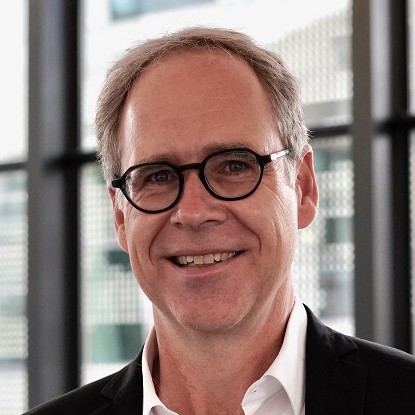Dr Rodrigo Esteves de Lima Lopes
Age: 50
My research areas: Applied Linguistics/Computational Linguistics
Name of my University / Research Institute: Universidade Estadual de Campinas (UNICAMP), Campinas, Brasil
Research period at the TU Darmstadt: January 2024 to July 2024
Programme: CAPES-Humboldt Research Fellowship for experienced researchers
My field of research is fascinating. The best way to explain it to non-specialists is…
My field of research is related to computational language processing and its application to discourse comprehension. We seek to understand how language is organized in such a way as to construct its meanings and carry out the social functions we see in our daily lives. In my research, language is seen as social, which constructs a social semiosis in which we are included and participate in creating. Linguistics is an applied social science that should reflect on relevant social issues.
What research questions are you currently working on?
During my stay at TU Darmstadt, we aim to build a corpus of data from parliamentary speeches on the floor of the Brazilian parliament. After building this corpus, we aim to discuss and compare the parliamentarians' perceptions of risk in the Brazilian and German parliaments.
My most important success in research to date is…
The best result I've achieved so far is modelling the language used in technological environments, especially social media. Thanks to the systematic work we've done over the last 10 years, we've observed how processes of social manipulation take place in such discursive spaces. My current project tries to model political discourse in its various registers in order to understand how such discourse reflects and influences society.
Will the results of your research have a concrete impact on our everyday lives now or at some later date?
Although my research does not deal with literacy issues or the formation of citizens aware of relevant political and social issues, it does directly impact this area. Understanding such discourses and how they are built is an important tool for preventing social manipulation and for understanding the ideological processes at work in our society.
What innovative developments are you expecting in your field of research in the next few years?
The research data we are collecting, as well as the scripts that make it possible, are public. I believe an open science model is one of the best ways to integrate society and the university. The use of computational methodologies is still rare in the humanities and linguistics. Thus, this work opens up a new field and expands the possibilities for the area.
I became a researcher because…
It was a natural development in my career. When I started my postgraduate studies, I began working as a language teacher. Curiosity and the need for improvement led me to research more and more. I then realized that I could contribute to a fairer society if I focused on training researchers and providing research results that could be basis for such reflections.
I have chosen TU Darmstadt because…
TU Darmstadt is an important reference centre in my field of research. The corpus infrastructure and the studies carried out here are amongst the most important in Europe. The possibility of an exchange with TU Darmstadt broadens my horizons as a researcher.
What lasting impressions will you take back home with you from your time in Darmstadt and Germany?
My impressions are the best possible. The entire group at TU Darmstadt, especially Professor Marcus Müller and the team he coordinates, have been fundamental in the development of this research. In addition to being welcoming, Dr. Müller and his team have helped raise the research's quality and its possible results. Overall, my professional and personal experiences in Germany have been the best I've ever had on a research exchange programme. I have established a professional and personal relationship with Germany and TU Darmstadt that I would like to cultivate and flourish.
Questionnaire for the host
Questionnaire for the host
Guest of: Professor Dr Marcus Müller
Department: Department of History and Social Sciences, Institute of Linguistics and Literary Studies, Digital Linguistics Unit
What did you appreciate most about your guest, or what is it that impressed you most favorably…
Dr Lima Lopes has an original, highly informed and methodologically advanced programme for analysing political discourse. His multifaceted approach is also reflected in his career. He worked as a cameraman for Brazilian television. He has been a lecturer not only in applied linguistics but also in digital design and intercultural media communication. With this background, he has become one of the most important scholars in Latin American linguistics being the current president of the Latin American Association for Systemic Functional Linguistics. I am particularly impressed by his enthusiasm for both the technical details of language processing and the social-theoretical modelling of language and his ability to combine both levels in linguistic analysis. This makes Dr Lima Lopes an excellent fit for our Darmstadt Digital Humanities team.
You, your team, and TU Darmstadt benefit from your guest’s stay…
At the TU Darmstadt Discourse Lab, we have been engaged in preparing, providing and analysing data sets on political language for years. Therefore, we benefit greatly from Dr Lima Lopes’ experience. For example, we host the linguistically enhanced corpus of the parliamentary protocols of the German Bundestag. This opens up excellent prospects for comparative research. For example, together we are exploring how risk and uncertainty have been addressed in German and Brazilian parliamentary discourse and what role these concepts have played in political rhetoric. We all benefit from Dr Lima Lopes’ vast experience and linguistic intuition, especially the young colleagues in my team. In our colloquia, he has already given many helpful hints and improved several qualification papers.







